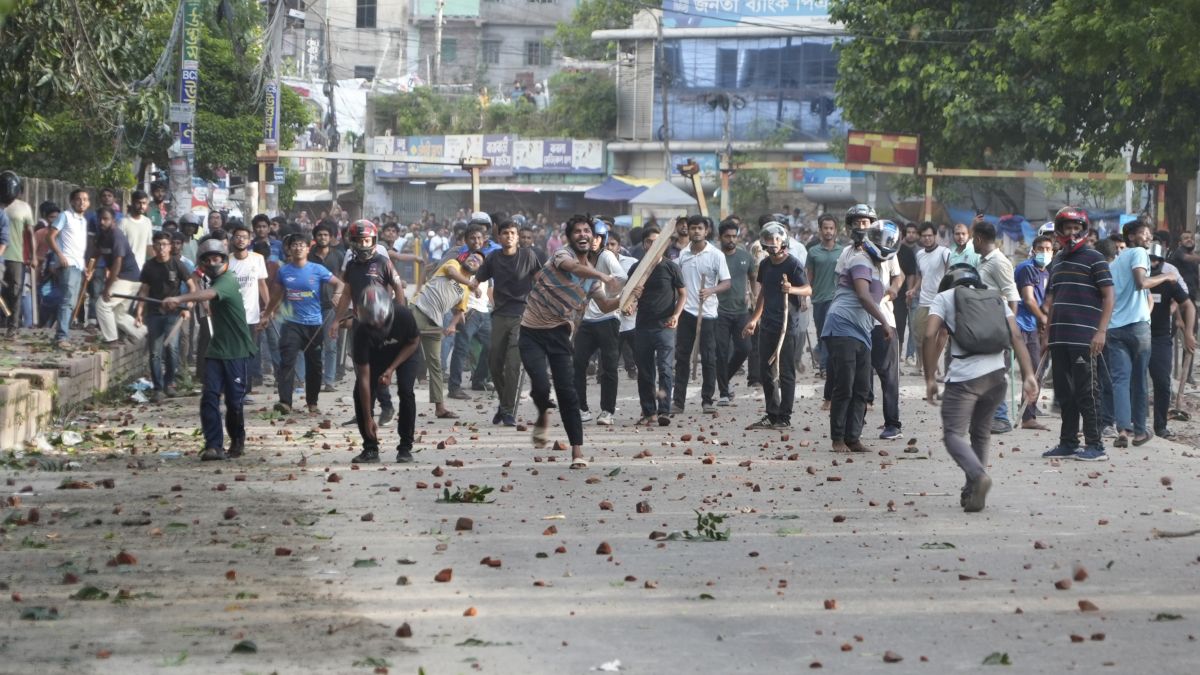Amid the raging protests in Bangladesh over the quota system issue, the country’s Supreme Court ruled that almost all government jobs must be offered on merit. The court scrapped most of the quotas on jobs that sparked nationwide anti-government protests.
Riot-like situation swept across the country after the government announced that a third of public sector jobs had been reserved for the relatives of veterans from the country’s war for independence from Pakistan in 1971.
However, on Sunday, the top court ruled that only 5 per cent of the roles can be reserved for the relatives of the veterans, BBC reported. Over 100 people have died in the violence that engulfed the country and at least 40 people were killed on Friday alone. The unrest compelled Bangladesh Prime Minister Sheikh Hasina’s government to impose a curfew across the country.
The high court verdict was ‘illegal’: Supreme Court
The court’s Appellate Division dismissed a lower court order that had reinstated the quotas last month. “The Supreme Court has said the High Court verdict was illegal," Attorney General AM Amid Uddin told AFP. He mentioned that other than the 5 per cent job reserved for the children of veterans, 2 per cent seats in the government jobs will be reserved for other categories.
The government is yet to respond over the matter. Meanwhile, the streets of Dhaka are completely deserted as the second day of curfew remains in force, BBC reported. However, there have been instances of sporadic clashes that have been reported in several areas.
Impact Shorts
More ShortsProtesters which mostly comprised of students argued that the quota system benefits supporters of Prime Minister Sheikh Hasina, whose Awami League party led the independence movement. They called for the Bangladeshi administration to replace the whole thing with a merit-based system.
Meanwhile, Hasina defended the quota system stating that veterans deserve the highest respect for their contributions in the war against Pakistan, regardless of their political affiliation. The demonstrations came just months after Hasina was re-elected for the fourth successive term this year.
With inputs from agencies.


)

)
)
)
)
)
)
)
)



